Romaine Washington, MEd., is the author of the poetry collection, Sirens in Her Belly (Jamii Publishing, 2015), and a fellow of the Inland Area Writing Project at the University of California in Riverside and the Watering Hole in South Carolina. She writes about her experience as the workshop facilitator for the San Bernardino Inlandia Writing Workshop sponsored by the Inlandia Institute. The library workshop is one of many free writing workshops organized by the Inlandia Institute in California’s Inland Empire region, and cosponsored by Poets & Writers.
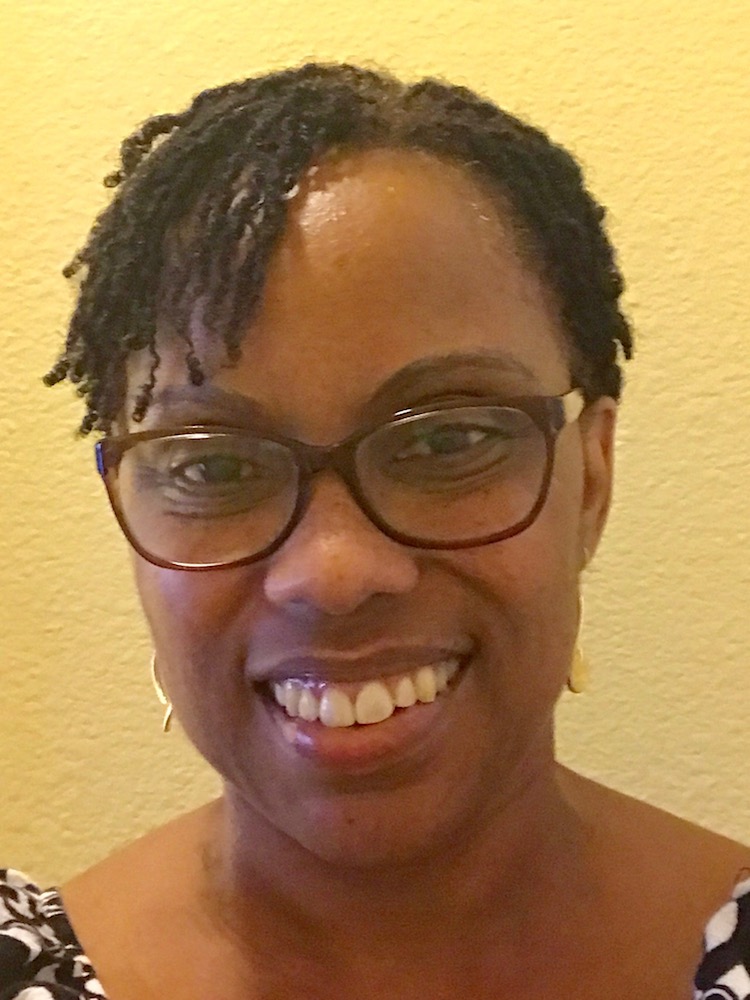 Over a year ago, I began attending the San Bernardino Inlandia Institute workshop located in the cozy Howard M. Rowe Branch Library. Facilitator Allyson Jeffredo shared her vision of creating a workshop steeped in honest conversation and a safe space. We were instructed to discuss the heart of the work which primed us to be receptive to constructive critique. Her mission of guiding us to our best writing selves was the perfect example of an effective workshop leader.
Over a year ago, I began attending the San Bernardino Inlandia Institute workshop located in the cozy Howard M. Rowe Branch Library. Facilitator Allyson Jeffredo shared her vision of creating a workshop steeped in honest conversation and a safe space. We were instructed to discuss the heart of the work which primed us to be receptive to constructive critique. Her mission of guiding us to our best writing selves was the perfect example of an effective workshop leader.
When Allyson moved, I was invited to be the facilitator and inherited a healthy workshop with friendly, patient, and creatively curious people like former social worker Charlotte LeVecque, who taught us about her love of horses in a poem titled “The Jump”:
He takes off
not a foot on the ground
My horse and I take wing
Our haiku guru, Cynthia Charlwood Pringle, transported us to a mini-retreat with these lines:
ocean inhales, holds
its breath – pauses – releases
foamy crescent domes
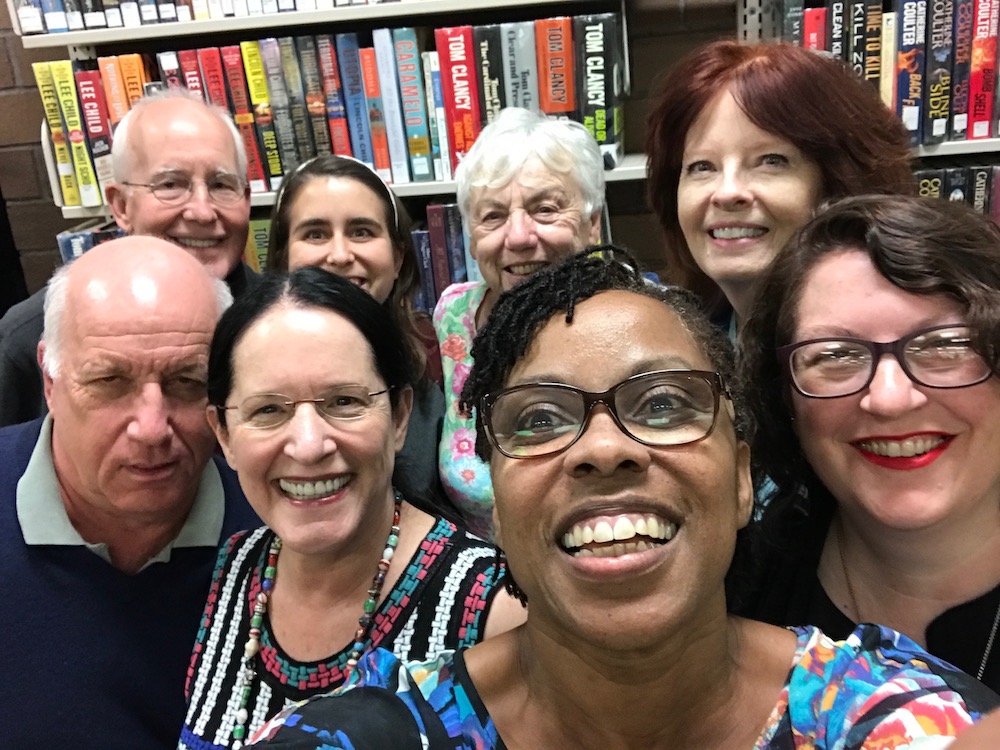 Our workshop participants range in age from mid-twenties to eighties, from college students to retirees. The octogenarian from Germany and the dancer in her twenties who works with at-risk youth have a mutual admiration for each other’s poetry and joie de vivre. The creative process, natural flow in fellowship, and mutual respect makes each meeting memorable.
Our workshop participants range in age from mid-twenties to eighties, from college students to retirees. The octogenarian from Germany and the dancer in her twenties who works with at-risk youth have a mutual admiration for each other’s poetry and joie de vivre. The creative process, natural flow in fellowship, and mutual respect makes each meeting memorable.
We’ve had visits from guest presenters like Marilyn Kallet, the poet laureate of Knoxville, Tennessee, whose dynamic presentation focused on “Joy in Everyday Things.” We went on a library scavenger hunt for inspiration and read impromptu lines with Kallet, but we were all most deeply moved when she read from her work.
For our next meeting, we will have guest presenter and local author Isabel Quintero, whose debut novel, Gabi, a Girl in Pieces (Cinco Puntos Press, 2014), won the 2015 Morris Award for Debut YA Fiction. She will speak to us about expressing our authentic voice. I am excited to see how this will impact our writing.
With each meeting I see growth in what is produced and the quality of constructive comments. Having inherited such a wonderful workshop, my mission is to see each person continue to thrive.
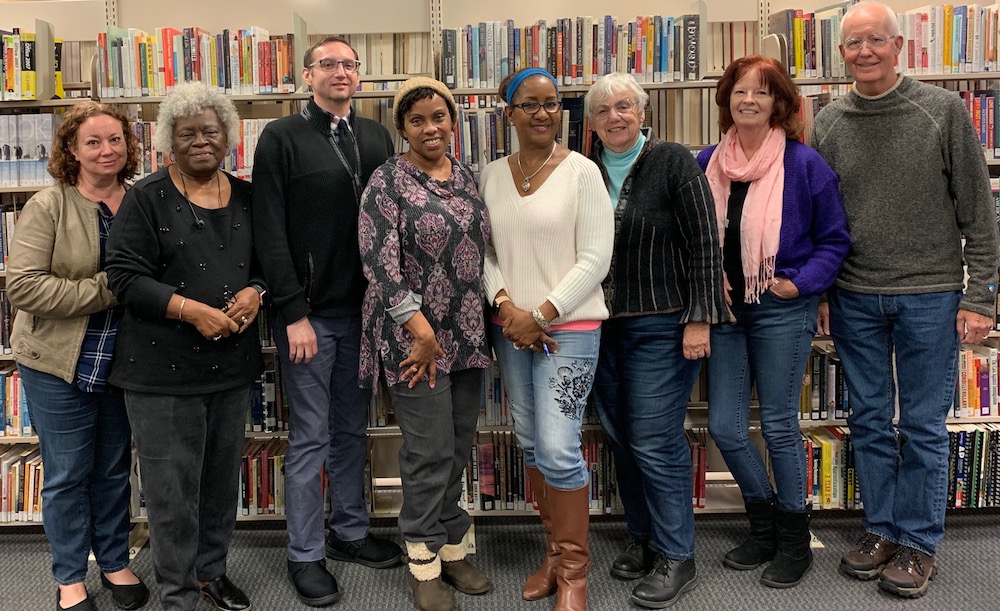
Support for Readings & Workshops in California is provided by the California Arts Council, a state agency, and the National Endowment for the Arts, a federal agency. Additional support comes from the Friends of Poets & Writers.
Photos: (top) Romaine Washington (Credit: Romaine Washington); (middle) Workshop participants with Romaine Washington (center), guest presenter Marilyn Kallet (left of center), and Inlandia Institute executive director Cati Porter (right of center) (Credit: Romaine Washington); (bottom) San Bernardino Inlandia workshop (Credit: Alex Arteava).







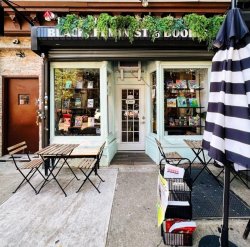
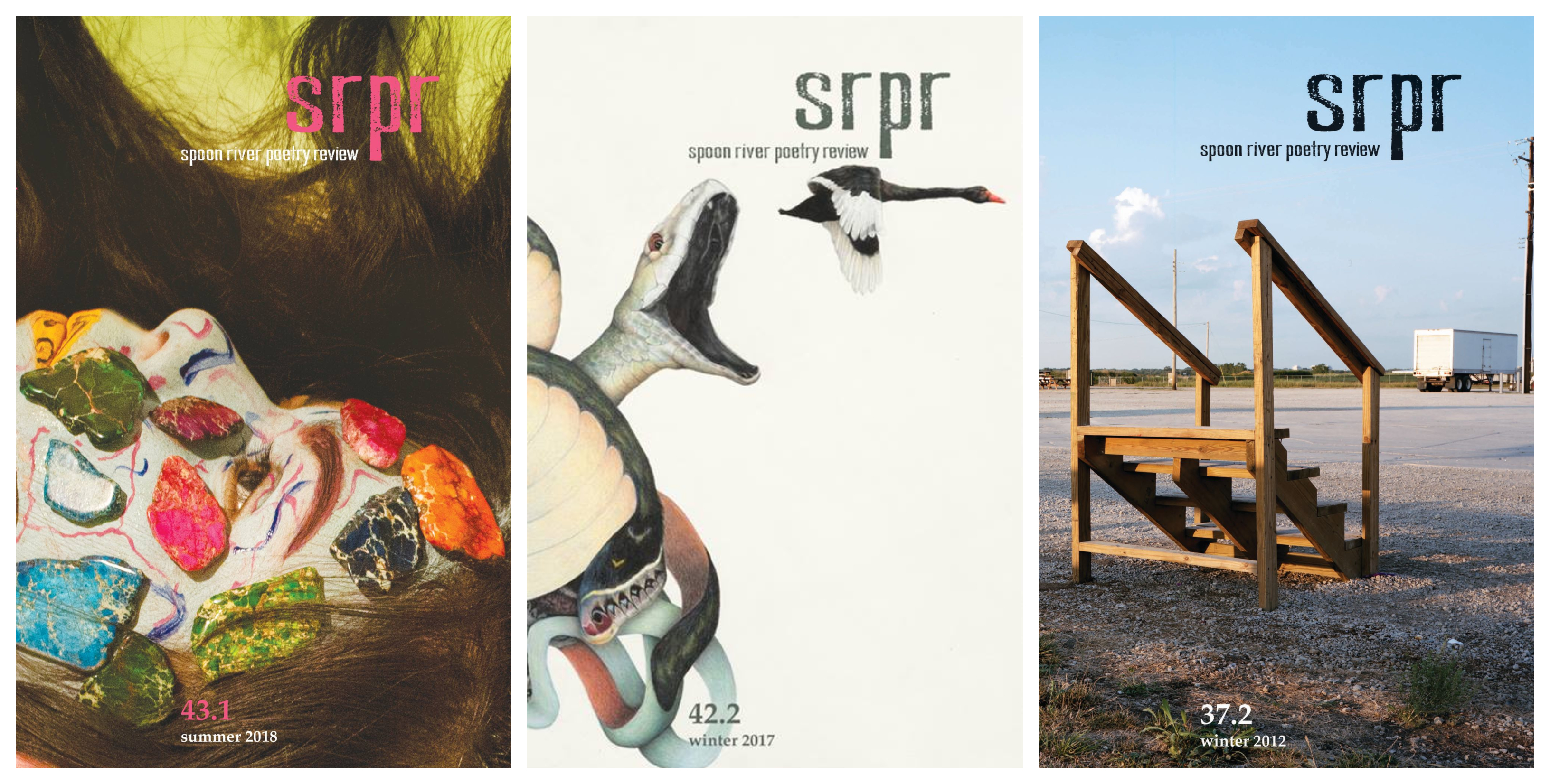
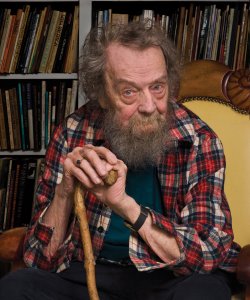

 Over a year ago, I began attending the San Bernardino
Over a year ago, I began attending the San Bernardino  Our workshop participants range in age from mid-twenties to eighties, from college students to retirees. The octogenarian from Germany and the dancer in her twenties who works with at-risk youth have a mutual admiration for each other’s poetry and joie de vivre. The creative process, natural flow in fellowship, and mutual respect makes each meeting memorable.
Our workshop participants range in age from mid-twenties to eighties, from college students to retirees. The octogenarian from Germany and the dancer in her twenties who works with at-risk youth have a mutual admiration for each other’s poetry and joie de vivre. The creative process, natural flow in fellowship, and mutual respect makes each meeting memorable.